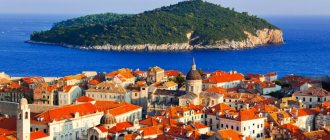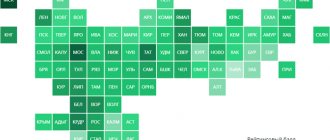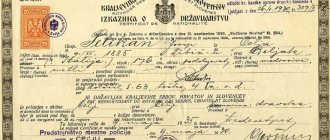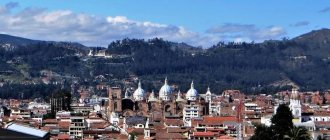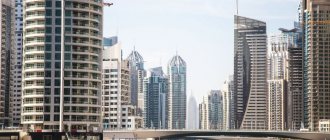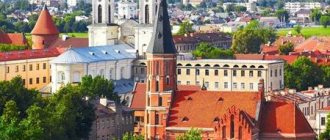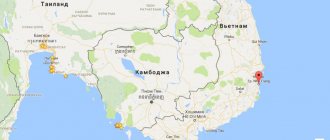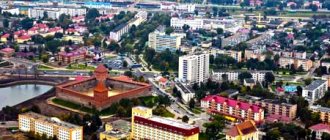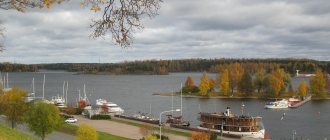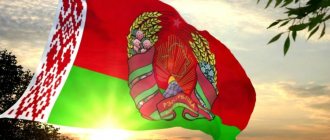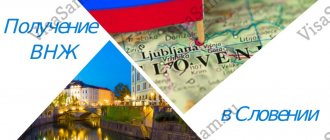Slovenia is a state in Eastern Europe, which is often compared to classic Western European countries. All their values - moderation, respect for others, obedience to the law - are also characteristic of Slovenia. This small and cozy country with a population of only 2 million people often becomes a gateway for immigrants to other Western European countries. This is used by many foreigners who come to Slovenia. Nevertheless, life in this civilized and beautiful European region attracts Russian migrants with average incomes. Therefore, it is worth considering the pros and cons of moving to the country and the living conditions it provides.
Changes in migration legislation in Slovenia
Persons planning to move to this country need to be aware of changes in Slovenian migration legislation. Innovations complicate the legalization procedure on the territory of the state and establish clear grounds for long-term residence. Now migrants moving for:
- business;
- getting an education;
- employment;
- family reunification;
- marriage.
Refugees and persons entering the country for humanitarian purposes also have the right to long-term residence in Slovenia.
It must be taken into account that the state does not offer legalization to foreigners through the purchase of real estate. Only citizens of the country have the opportunity to purchase housing. Individual immigrants who decide to move here are deprived of the right to own real estate.

Displaced people may move to do business.
Slovenian legislation does not provide for separate programs for the relocation of foreign pensioners.
They are offered legalization on a general basis.
Attractiveness of the country
It seems to everyone that life abroad is much better than in any Russian city, even St. Petersburg or Moscow. In Europe, they say, wages are higher, the streets are cleaner, people treat each other much more respectfully. And this is partly true.
There are many attractive things about moving to Slovenia. The country is located on the Mediterranean coast. Even from the city farthest from the sea you can get to the water in no more than 5 hours.
Slovenia is located in central Europe and borders countries such as Hungary, Croatia, Austria and Italy, which opens up great opportunities for tourism. During school holidays or during vacation, you can go and see any country in Europe: they are all no further from each other than St. Petersburg from Moscow.
Slovenia is also close to Russia in its cultural heritage. Despite the fact that in the 90s the Catholic Church gained great popularity in the country, there are quite a lot of Orthodox parishes in many cities, and especially in the capital. Also, the Slovenian language is close to Russian. Of course, you are unlikely to be able to explain yourself to someone, but you will be able to understand the speech of local residents or read some signs in a store.
Note. After two years of permanent living in Slovenia, you have the right to take free language courses.
And the very attitude towards Russians in Slovenia does not cause outrage. They treat our compatriots with tolerance: no one points fingers, publicly, and they don’t call them names behind their backs either.
Life in Slovenia: pros and cons
Russians, when deciding to immigrate to Slovenia, take into account the many advantages of living in this country. Among them:
- the state's membership in the Schengen area;
- stable political situation;
- a tax system that is loyal to businessmen;
- developed economy;
- quality medical care;
- good transport infrastructure;
- similarity of culture, easy to learn language;
- small number of migrants from the Middle East;
- good attitude towards people from Slavic countries;
- comfortable climate, concern for the environment.
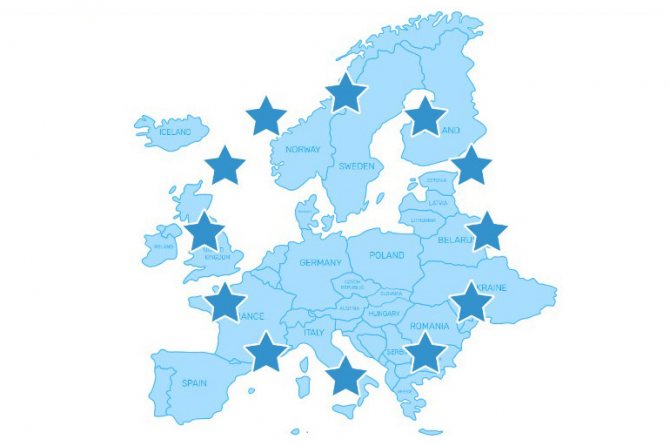
Slovenia belongs to the Schengen area.
In addition to the advantages, living in Slovenia also has some disadvantages:
- high real estate prices, inability to buy housing before obtaining citizenship;
- low (compared to developed Western European countries) salaries;
- difficulties with official employment;
- expensive products;
- lack of a developed entertainment industry.
Country visa regime
Citizens of the Russian Federation for a long stay in Slovenia require a Schengen visa D, work or student. It is also suitable for those traveling to this country to reunite with family.
To obtain an entry permit, you must prepare a package of documents:
- international passport (original and copy) with blank pages, valid for the next six months;
- Russian passport;
- copies of previously received international passports;
- a form filled out in Slovenian or English;
- 2 photo cards 35x45 mm;
- a document confirming the financial solvency of the migrant or his host;
- health insurance in the amount of 30,000 euros;
- housing rental agreement.
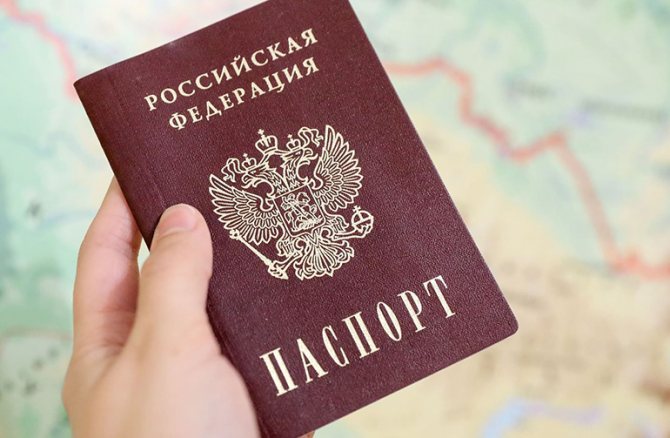
To obtain entry permission, you must prepare a passport.
Depending on the reason for the move, the foreigner supplements the documents with an invitation from the employer or relatives, an agreement with an educational institution, etc.
The cost of a visa is 77 euros. Persons who are denied a permit may request it again. The fee in this case will increase to 153 euros.
The applicant receives a passport with a visa at the embassy in person.
Accommodation and housing and communal services payments
Apartments and houses in Slovenia have electricity, water, gas, and heating meters installed.
Compared to other European countries, utility bills are relatively high here. In winter, they increase further due to heating costs.
The owner (tenant) of the property receives invoices for each service separately, in a sealed envelope. They are coming:
- From the main owner of the house. It serves common areas and water supply.
- For garbage removal. The amount depends on the number of garbage containers and how often they are emptied.
- For heating.
- For electricity. In Slovenia there are day and night tariffs. The second one is 20% cheaper.
- RTV account. All TV owners pay a mandatory government tax of 12 euros.
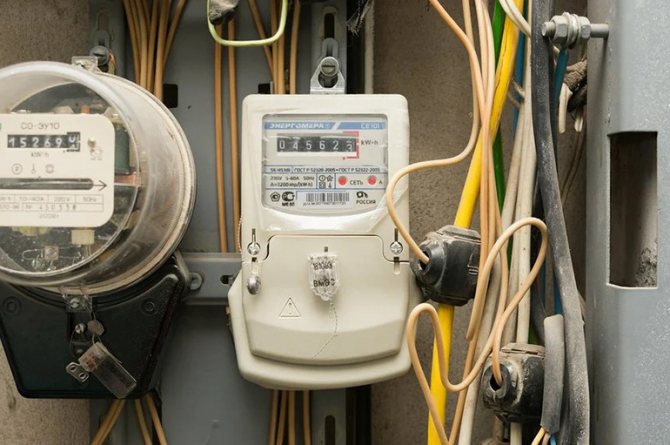
Electricity meters are installed in Slovenia.
Salary level
Statistics show that Slovenia is in 14th place in the European Union in terms of the legal minimum wage. It is 940.58 euros per month.
The greatest income is received by specialists working in the field of gas and electricity supply. Its average value is 1,838 euros (after tax deductions). Persons employed in the health and social care sector receive an average of 1,328 euros. Education workers - 1,244. The average income in Slovenia reaches 1,173 euros per month.
Communications in the country
There are 4 cellular operators operating in the state, offering contract or prepaid tariffs. Even a non-resident of Slovenia can get a SIM card of the second category.
You can also call from a pay phone. Communication is paid for by card, which can be purchased at the post office or the nearest newsstand.

Cellular operators operate in Slovenia.
The country has a good Wi-Fi network. Hotels may charge a fee for using wireless Internet, but it is free in shopping centers and catering establishments.
Products
There are supermarkets of large international companies in Slovenia: Spar, Lidl and Hofer. The national chain is represented by the retailer Merkator. The average cost of 1 liter of milk is 1 euro, a loaf of bread - 1.3. For 1 kg of potatoes you will have to pay 0.6 euros, cucumbers or tomatoes - 2. Chicken fillet costs 6.5 euros, boneless beef - up to 10 euros.
Street markets compete with grocery supermarkets. Prices there are higher than in retail chains. But this is compensated by the freshness and naturalness of the products.
Transport system
It is convenient to travel around the city by bus. The fare costs 1.20 euros. The ticket is valid for an hour, so the passenger can make transfers. To pay for trips, use a special Urbana karta card. You can purchase or replenish it through terminals at bus stops or at newsstands. Cash is not accepted on buses.
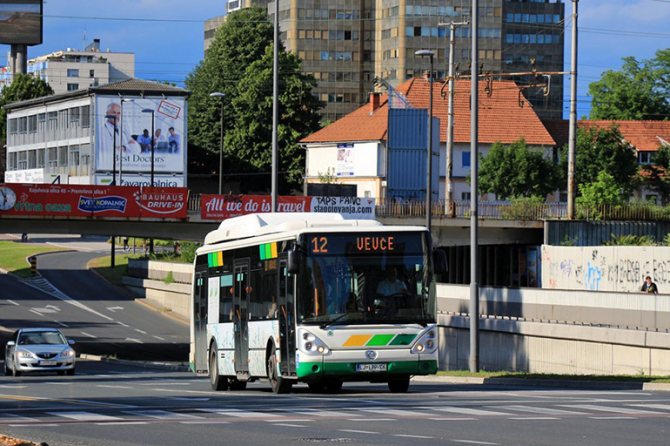
It is convenient to use buses in Slovenia.
An alternative to public transport is a bicycle. Ljubljana, the capital of Slovenia, has many designated paths. Automated bicycle rental points are equipped in all areas of the city. An annual subscription costs a few euros.
Intercity buses operate throughout the country, but the number of trips is limited. Another option for transportation is to use rail transport.
Restaurants and cafes
Pizza or pasta in a cafe will cost 7 euros. For a cup of cappuccino you will have to pay 1.5 euros, for a light lunch at a fast food restaurant - about 6.
In a restaurant serving Slovenian cuisine, a main meat course costs from 10 to 23 euros, a portion of goulash costs 10.
Sports and entertainment
A typical Slovenian leisure activity is visiting thermal waters. Such spa centers operate year-round; in winter you can bask in warm water at 32-36 °C. In summer you can also swim in the outdoor pool and ride the water slides.
An entrance ticket for 2 hours to the Snovik thermal baths closest to Ljubljana costs 10 € (734 RUR), for the whole day - 14 € (1028 RUR). Many people come with families, as if to a holiday home, since there is always a hotel at the thermal baths. We came there in December for an overnight stay. A double room cost 73 € (5358 RUR), unlimited swimming in the pool is included in the price.
Indoor pool with healing thermal water in the Snovik thermal baths. Photo: Terme Snovik/facebook
I joke that the main entertainment for Slovenians is to climb somewhere high, admire the beautiful view and run down. When you come to Ljubljana for the first time, you will probably want to climb the main attraction - the Ljubljana Castle. It is clearly visible from anywhere in the city and even from our suburbs.
New Year's Ljubljana and illuminated Castle. Photo: Soru Epotok/ShutterstockChurch of St. Anne on a hill in Ljubljana Barje, not far from our house
There are many hills near the capital, each of which has a small church or castle. In the north and northwest of the country are the Alps, where you can climb even higher.
In the summer everyone goes to the seaside in Croatia. Slovenia also has access to the sea, but not much. For each of the 2 million Slovenians there is only 2 cm of Mediterranean coastline, and even then it is rocky or concrete.
Fitness, swimming pool, yoga and other indoor sports are not very popular among Slovenians.
They would rather run around the streets or ride long distances on a bicycle. A monthly fitness subscription in the city center costs 67 € (4918 RUR) with unlimited visiting time. For a year, such a subscription will cost 670 € (49,178 RUR). 670 €
costs an annual fitness subscription
A movie ticket - for example, to the largest cinema Kolosej - costs 5.85 € (430 RUR) on weekdays and 6.2 € (455 RUR) on weekends. Tickets for concerts cost from 40 € (2936 RUR) for a seat in the gallery to 110 € (8074 RUR) in the “platinum stall”.
Tickets for the concert of violin virtuoso David Garrett
Slovenes, on the one hand, are very athletic people: they run, ride bicycles and roller skates. On the other hand, a Slovenian’s frequent leisure activity is to go on a visit and have a good meal or sit in a bar near the house with a glass of beer.
We prefer to go on walks in different parts of the country: cycling along lakes Bled and Bohinj, climbing to the Peričnik waterfall and exploring the caves in Rakov Škocjan.
Stunning views of the rooftops of Ljubljana. Photo: Jorge Franganillo/Flickr
Moving a Russian to Slovenia
There are several reasons for foreigners to stay in Slovenia for a long time. Russians can use any of them.
Business immigration
The country's economy has been in crisis for a long time, so now the Slovenian authorities have increased loyalty to foreign investors. Business immigration is a popular way of legalization on the territory of the state. An entrepreneur needs to register a company in Slovenia or buy an existing company. The minimum contribution to the authorized capital is 7.5 thousand euros.

Business immigration is very popular.
After this, he can request a residence permit. If the company operates over the next year, the businessman will be able to move his family to Slovenia under the reunification program.
Departure to reunite with family
This option of moving to the country is suitable for relatives of citizens or migrants living in the state with resident status.
In Slovenia, family members include spouses and minor children.
Getting an education
A student from abroad studying at a university in Slovenia is entitled to a residence permit. The university he chooses must have a license to provide educational services to foreigners. To confirm the basis for legalization, it is enough to present papers of enrollment.
To become a student, you need to send a set of documents to the university with a certificate translated into Slovenian. Admission is based on average score without passing entrance exams. 1st year students do not need to know the language. However, after a year they will have to pass an appropriate test confirming their proficiency in Slovenian.
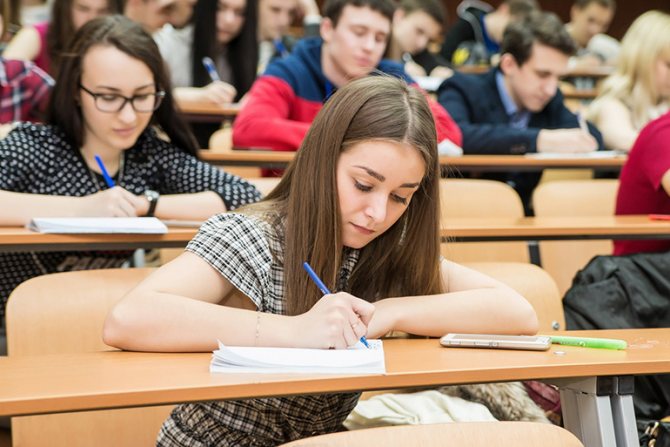
Students have the right to obtain a residence permit.
A foreigner with a student visa can work part-time while studying. Having received a university diploma and lived in Slovenia for 7 years, a person has the right to apply for citizenship of the country. However, 1 year of student life is equivalent to only 6 months of official stay.
Marriage to a resident of the country
A foreigner marrying a Slovenian has the right to obtain a residence permit, and then permanent residence. As a basis for legalization, the country's authorities require a marriage certificate. A document received outside a Balkan state must be translated into Slovenian.
The attitude towards international marriage unions in Slovenia is wary: they often become only a pretext for official residence in Europe. In the first years, the spouses will be monitored: if the migration service suspects a couple of entering into a fictitious marriage, the foreign citizen faces deportation. A resident of Slovenia faces penalties.
Refugee Program
Refugees from countries with unfavorable political conditions can receive asylum. During the period of consideration of the application, the person is provided with housing and food. He receives medical care and benefits. But if a migrant is suspected of lying or falsifying facts, he will be deported.
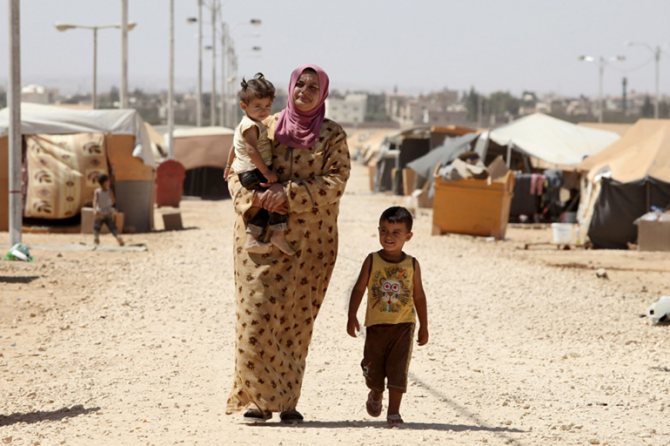
Refugees can receive political asylum.
Purchase of real estate
The list of grounds for obtaining a residence permit in Slovenia, updated in 2020, does not include the acquisition of real estate. Immigrants cannot buy housing in the country. Only legal entities registered by foreigners have this right.
Employment in Slovenia
To obtain a residence permit on this basis, a foreigner must obtain a work permit. Employers in the country are only interested in highly qualified personnel. The applicant must have an appropriate diploma and speak Slovenian.
The list of professions in demand in the state includes:
- IT specialists;
- doctors;
- engineers;
- tourism workers.
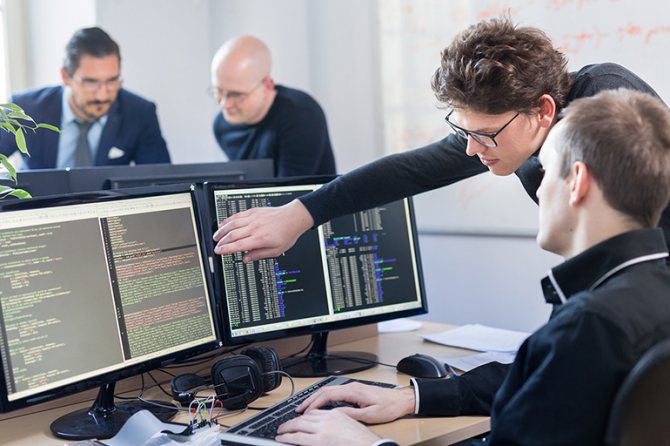
IT specialists are in great demand throughout the state.
A working residence permit is valid for 1 year. With an existing contract, it can be extended for another year, and then for 3 years at once. A foreigner who has officially lived in Slovenia for 5 years can apply for permanent residence permit.
Communication and Internet
Internet and mobile communications in Slovenia are more expensive than in Moscow. We have SIM cards from the Easy-Mobile operator, which since 2021 has become part of one of the largest mobile operators, Telecom-Slovenia. We pay 7 € (514 RUR) per month for each person for a package of 3000 units: this could be 1 minute of conversation, 1 SMS, 1 MB of Internet. The tariff is called “Easy-month-s”, and, perhaps, it is one of the most inexpensive in Slovenia.
A SIM card with money in your account can be purchased at the company’s office or in retail chains. It comes with activation instructions in English and even Russian.
In addition to Telekom-Slovenia, there are also operators A1, Telemach, Bob (owned by A1) and others.
Tariffs of the Telecom-Slovenia operator for mobile communications. Prices for July 2021
We have mobile Internet with LTE/4G. The owners connected home Internet at a speed of 20 Mb/sec through the A1 operator. Although they submitted an application for connection even before our arrival, for the first two weeks we lived without the Internet. It was difficult, because in Ljubljana there are very few restaurants and cafes with Wi-Fi. There is city Wi-Fi, which you can connect to for free for an hour a day, it was a lifesaver.
At first we paid 23 € (1688 RUR) for a package of internet, television and landline phone. I explained that we didn’t need the last two options, after which the Internet began to cost 16 € (1174 RUR) per month. The router was provided free of charge, I have no complaints about the quality of communication.
A1 operator tariffs for Internet + TV + landline telephone packages. Prices for July 2021
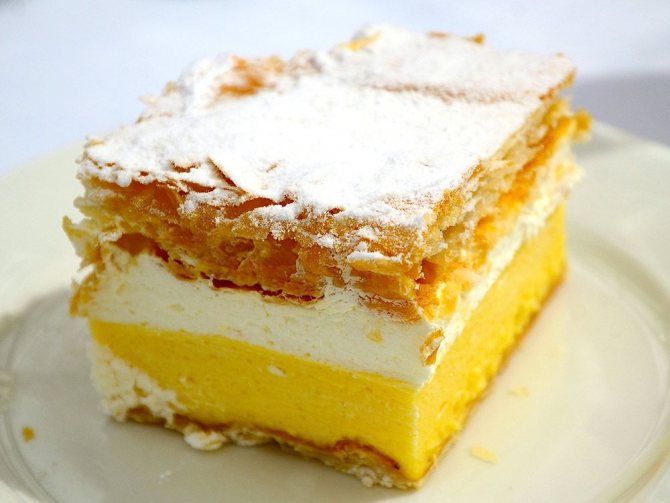
EU Blue Card
The idea of introducing an identification card without the right to grant citizenship was voiced by the head of the European Commission in 2007. The project has been in effect since 2009, it is designed to meet the needs of EU states for a qualified workforce, the shortage of which is caused by a strong aging population.
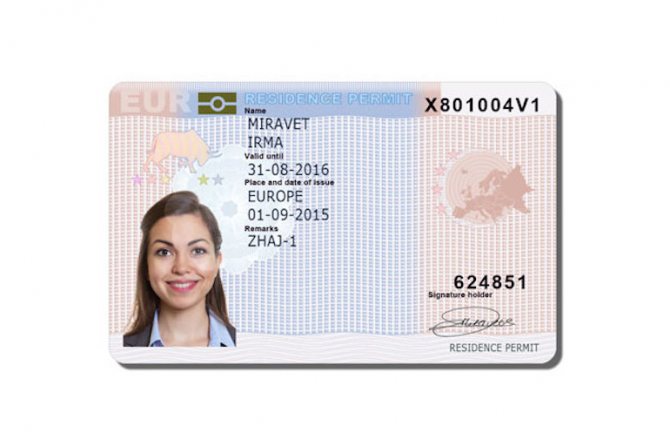
The EU Blue Card is an identity document confirming its owner’s right to a residence permit.
What it is
The Blue Card is an identity document confirming the right of its owner to a residence permit and work in the EU countries. It is available to citizens of countries outside the Eurozone.
What privileges does it give
The Blue Card holder has the opportunity to work under the same conditions as EU citizens. There is a minimum income level that must be taken into account by the employer. The validity period of such a permit is no more than 4 years. The spouse of a person who has received a Blue Card can also legally live and work in the European Union.
Requirements for the applicant
An applicant for such a permit must satisfy a number of requirements:
- Have a higher education, be a specialist or a master. As confirmation, it is necessary to provide a European diploma that meets the requirements of the country where the person is going to work. An educational document that does not meet the stated standards must be confirmed.
- Work in your specialty.
- Conclude a contract with a European employer. The minimum term of an employment contract is 1 year.

The applicant must work in his specialty.
Registration of the Blue Card
A specialist in a profession in demand in Europe can receive an EU Blue Card. These are IT developers, physicists and mathematicians, engineers, lawyers, architects, doctors, etc.
The applicant must fill out a special form on the website of the country where he plans to work. In the questionnaire, he enters as much information as possible about his education and work experience. After verification, the data will be included in the database used by European employers. After receiving a response, the candidate undergoes a remote interview. If a company is interested in cooperation, an employment contract is concluded and the procedure for obtaining a card begins.
What nationalities do people live in the country?
The population of the state is just over 2 million citizens. About 85% are ethnic Slovenes; due to the aging of the nation, their numbers are gradually decreasing. The remaining 15% are Croats, Bosnians, Serbs, Italians, Hungarians, Albanians. About 80% of the population lives in 11 cities, including the capital Ljubljana - 275 thousand people.
Number of immigrants from Russia
About 2,000 immigrants from the Russian Federation live in Slovenia. These are mainly young people under 40 years of age. Among Russian citizens in Slovenia, over half have higher education, 61% are employed, and another 5% are students. The majority of Russians live in cities in the central region; the wealthiest buy houses by the sea or on the shores of high-mountain lakes.
Attitude towards visitors
How Russians are treated in Slovenia can be judged by the reviews of tens of thousands of tourists who annually visit seaside, medical and ski resorts. Slovenians are tolerant people and know how to respect themselves and others. They don’t throw themselves at visitors, but they don’t give them a reason to feel like second-class citizens. Sometimes Slovenians judge Russians by their wealthiest representatives and consider them rich people.
The process of obtaining a residence permit in Slovenia
If there are sufficient grounds for obtaining a residence permit, the first permit is granted to a foreigner for a period of 1 year. Then it is extended for the same period. The next time a residence permit in Slovenia is issued for 3 years.
To obtain a residence permit, a foreigner must sequentially go through several stages:
- make an appointment via the Internet at the country’s migration service;
- fill out an electronic application;
- collect a set of documents;
- show up for your appointment at the appointed time, undergo biometrics and an interview;
- wait for a decision on your application.
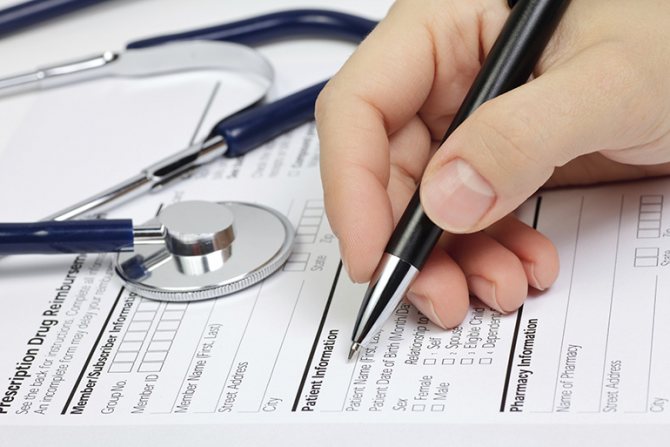
To obtain a residence permit you need health insurance.
To obtain a residence permit, a migrant prepares a set of documents:
- A statement indicating the purpose of arrival and duration of stay in the country.
- A passport valid for 1 year with sufficient blank pages.
- Medical insurance.
- Document confirming no criminal record.
- 2 photos.
- A bank statement confirming that the applicant has funds.
- A document explaining the need to stay in Slovenia for a long time (a certificate from a university, statutory documents of a company, etc.).
- Rental agreement for an apartment or room.
If the papers were issued in the Russian Federation, they should be translated into Slovenian and notarized. A document confirming no criminal record is certified by an apostille.
Slovenian legislation allows 1 month for consideration of the application. In practice, the deadlines are delayed, and the foreigner waits 3 or even 4 months for a decision. If the response from the migration authorities is positive, within 2 weeks the applicant will be issued a plastic card confirming the availability of a residence permit.
Registration of a residence permit is a paid service. The state fee is 120 euros. The foreigner pays this amount in cash at the time of submitting documents for consideration. If he is refused, the funds will not be returned.
Language and communication
There is a lot of Old Slavic in the Slovenian language. It is easy to remember, by association.
There are also funny words: the first time we had a lot of fun when we saw the poster of the Ponos ensemble. Then it turned out that there is a whole Parad ponosa, and “ponos” is “pride” in Slovenian.
Ensemble "Pride". Source: Ensambel Ponos
Things are more complicated with grammar, because Slovenian is the only “romantic” language with a dual number. Therefore, for two people or objects you need to use separate declensions: “we two” (midva), “you two” (vidva), “they two” (onadva). The Slovenian language has cases, declensions and genders of nouns. But with time it’s simple: present, past and future.
My husband is studying language at the language school Cene Štupar. A year of study there costs 2,000 € (146,800 RUR). Training takes place in Slovenian, sometimes the teacher can explain something in English. There is a lot of material, intensive speaking and writing practice. Together with other students, my husband goes to various events to get acquainted with the culture of Slovenia: to a museum, theater, to a reception with the president.
I learned the language with a tutor back in Moscow, via Skype.
Then I studied on my own using textbooks. I don't have enough time for further studies yet. My knowledge is enough for communication at the everyday level: a small conversation or a trip to the store. It is better to be prepared for more complex cases, such as going to a bank or a car mechanic. I conduct business in English and Russian, because some of my clients remain in Russia. 2000 €
costs a year of study at the language school Cene Štupar
When communicating with Slovenians, I try not to switch to English, although most of them speak it, as well as German and Italian. The older generation knows Russian, and in general everyone is friendly towards Russian speakers.
Permanent residence and its advantages
Having lived in Slovenia for 5 years legally, a foreigner can apply for permanent resident status. According to the laws of the country, permanent residence is indefinite and allows:
- reside in the state and enjoy the same rights as the local population, excluding participation in elections;
- 3 years after receiving permanent residence, apply for a passport.
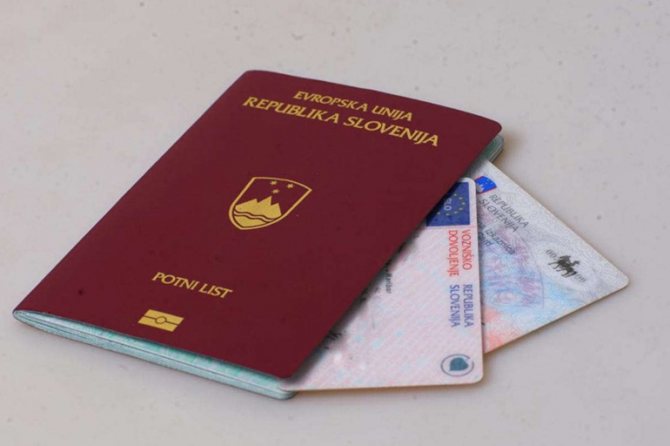
After living in Slovenia for 5 years, you can apply for permanent resident status.
Cafes and restaurants
In a restaurant, two people can have lunch for 20 € (1468 RUR). For this money you can take a large salad - 5 € (367 RUR), pizza - 7.5 € (550 RUR), a glass of beer - 2 € (147 RUR). The portions are large, you can safely order one dish for two and then ask to take the rest with you.
A traditional Slovenian dish is kranjska sausage (in Slovenian, “klobasa”).
Fried sausages cevapcici and a round flat cutlet - pljeskavica are also popular here, although they are also considered Serbian dishes. A traditional dessert is the "Bley Rubber" cake, made from whipped cream and custard between two thin slices of puff pastry. 2 €
costs a glass of beer in a restaurant in Ljubljana
The most popular brands of beer are “Union” and “Lashko”; they remind me painfully of “Baltika”. In a restaurant, a glass of beer 0.5 l costs about 2 € (147 RUR). It is better to taste the varieties of local craft breweries, of which there are many in Slovenia. You can find beers made from mango, tomato, seaweed and fig. A half-liter glass of this beer costs from 5.5 € (404 RUR).
We have breakfast in Ljubljana. Portions are large Cake "Bley rubber" made from whipped cream and custard. Photo: wattie/Flickr
Slovenian citizenship
The final stage of legalization of a foreigner is obtaining citizenship. The laws of the country determine under what conditions a migrant can become the holder of a national passport:
- A labor migrant or business investor must live in Slovenia for 10 years, a graduate of a local university - 7 years.
- A foreigner must not violate the migration regime and state laws.
- The applicant will have to pass an exam and confirm that he knows the language, culture and traditions of the country.
- A resident should not have a gap between obtaining a residence permit and permanent residence.
- The migrant needs to prove his financial solvency.
- The foreigner will have to renounce previously acquired citizenship.
Russian diaspora and community
Russians do not often settle in Ljubljana and other cities of the country - there are about 1 thousand of them. There is no clearly defined diaspora; former citizens of the Russian Federation are scattered throughout the territory of the state. In recent years, the number of visiting Russians has increased, but still remains insignificant.
Russians prefer large cities. Having a high income, some move closer to high mountain lakes or the seashore. It is quite easy for them to adapt to Slovenia due to the closeness of the local culture, customs and mentality to the Russians. Everything good is easy to get used to. Having once tasted quality products, felt the care of the authorities and law enforcement agencies, and enjoyed the atmosphere of blissful peace, few people want to give up these benefits.
Labor market
Special recruiting agencies are looking for job vacancies in Slovenia for Russians. Their services are the most effective, but are not cheap. You can look for a place through the employment service or special websites. A work permit is usually issued by the employer with whom the contract has been signed. Finding a job is not easy, there are few vacancies. After 20 months of legal activity, you can obtain an individual permit, which will allow you to change jobs, and in case of forced dismissal, get into the employment service database. The document is issued for a maximum of 3 months.
Professions in demand
The average salary in Slovenia is € before taxes. There are large industrial enterprises here:
- Bosch and Gorenje – household appliances;
- Renault - automotive industry;
- Belinka – paint and varnish products.
There is a demand for designers, IT specialists and engineers. You must undergo mandatory nostrification and prove to management your high qualifications. Working as a doctor in Slovenia is possible after confirming your diploma and passing additional exams as decided by the commission. In the tourism industry, you can find a place for a Russian-speaking manager. Qualified chefs and pastry chefs required. Immigrants with certain skills may be hired to care for children or the elderly.
Salaries in the country
By industry sector and profession, salaries are:
- electricity and gas industry – 2800 €;
- financiers and insurers – 2350 €;
- IT companies – 2200 €;
- restaurants and hotels – 1100 €;
- teachers – 1900 €;
- doctors – 2300 €;
- utilities industry – 1770 €;
- forestry – 1520 €;
- production – 1480 €.
All amounts are before tax.
Minimum wage
The government regularly increases it, adjusting for inflation. The minimum salary in Slovenia in 2021 is EUR before personal income tax and EUR after taxes.
Business immigration
An applicant who has sufficient funds to move to Slovenia can legalize himself in the country by becoming a business owner. To register an LLC, you need to deposit an initial capital of at least 7,500 €. This makes it possible to obtain a visa for 6 months. At the end of this period, a work permit and residence permit are issued. After another year, family members have the right to receive a residence permit. For those who don’t want to wait, intermediary companies sell ready-made businesses in Slovenia for Russians. If the purchased LLC was registered more than a year ago, you can immediately apply for a residence permit.
